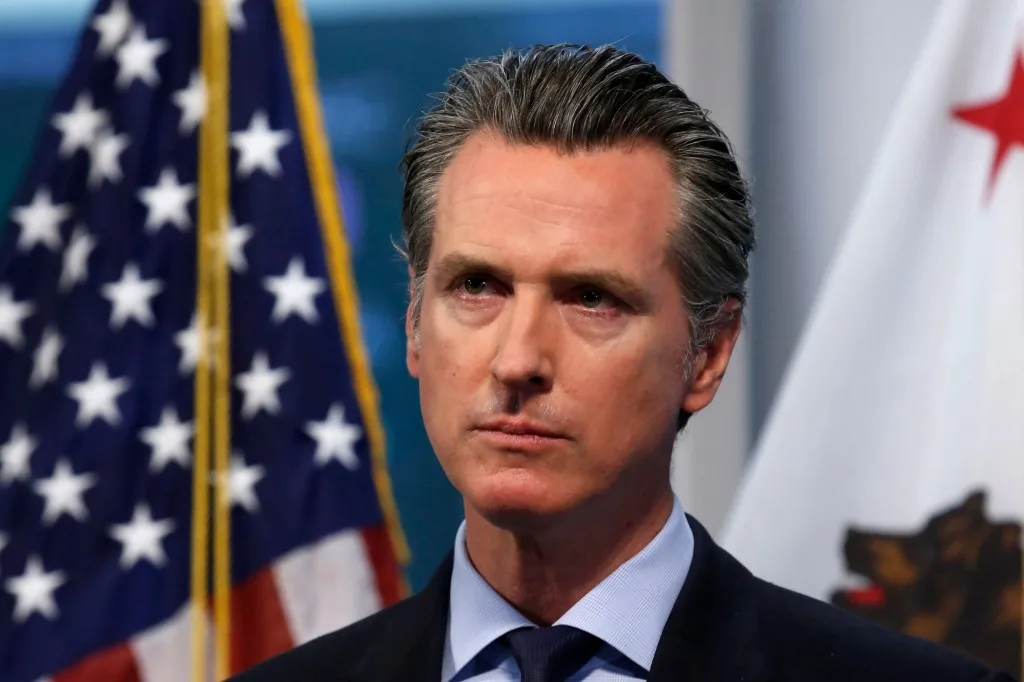
William Congreve, an English playwright, coined the adage “Married in haste, we may repent at leisure,” in his 1693 comedy “The Old Batchelour,” but it quickly evolved into sage advice for other human behaviors.
California Gov. Gavin Newsom could regret hasty political promises to California’s Black population — to appoint a Black woman to the U.S. Senate if a seat becomes vacant, and provide meaningful reparations for the state’s woeful history of racial discrimination — that he probably cannot honor.
Newsom made the Senate pledge in early 2021 after appointing Alex Padilla to the Senate, replacing Kamala Harris once she became vice president. The appointment drew criticism from Black political leaders and women’s groups because he was replacing a woman with Black and South Asian ethnic heritage with a Latino man.
Weeks later, Newsom was asked by MSNBC host Joy Reid whether he would appoint another Black woman to the Senate should Sen. Dianne Feinstein, suffering from physical and apparently neurological ailments, resign.
“I have multiple names in mind. We have multiple names in mind – and the answer is yes,” Newsom replied, obviously trying to dampen the criticism.
As Feinstein’s situation continued to deteriorate, she announced earlier this year that she would not seek re-election in 2024. That touched off a contest among three Democratic members of Congress – Katie Porter, Adam Schiff and Barbara Lee with the latter, a Black woman, badly trailing the other two.
Newsom’s pledge to appoint a Black woman became a political trap of his own making. If Feinstein resigned, he would be pressed by Black leaders to appoint Lee, but if he did, he would be interfering with the election, causing no end of political grief.
Over the weekend, while pressed again by Chuck Todd of Meet the Press, Newsom said he would name a Black woman to fill a vacant Senate seat — but only as a caretaker to fill out Feinstein’s term, meaning it would not be Lee.
If Newsom thought he had resolved the matter, he was mistaken because Lee denounced it, saying, “The idea a Black woman should be appointed only as a caretaker to simply check a box is insulting to countless Black women across this country who have carried the Democratic Party to victory election after election.”
When he signed 2020 legislation to create a commission to recommend reparations for Black Californians, Newsom declared, “Our painful history of slavery has evolved into structural racism and bias built into and permeating throughout our democratic and economic institutions” and promised, “we won’t turn away from this moment to make right the discrimination and disadvantages that Black Californians and people of color still face.”
However, as the commission completed its work this year and declared that some very hefty financial payments to descendants of slaves would be justified, Newsom became noncommittal.
While praising the commission’s work as “a milestone in our bipartisan effort to advance justice and promote healing,” he said, “Dealing with that legacy is about much more than cash payments.”
Newsom’s cool response is where matters lie. Members of the commission still expect reparations to include some hard cash but with the state experiencing multi-billion-dollar budget deficits that are likely to persist, anything more than token payments are unlikely.
Meanwhile, a new poll by UC-Berkeley’s Institute of Governmental Studies has found scant support among Californians for cash reparations, even as they recognize the lingering impacts of slavery. Such payments are opposed by 59% of the registered voters surveyed, with Republicans and independents overwhelmingly opposed and Democrats evenly divided.
Newsom is caught between hopes of Black leaders for substantial reparations and the utter lack of popular support.
Dan Walters is a CalMatters columnist.

